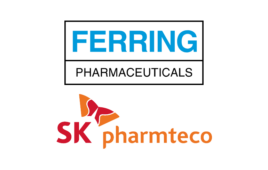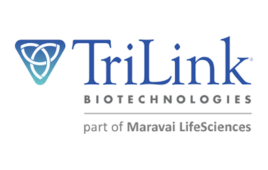Biosimilar manufacturers are creating generic versions of biologics and beginning the process of filing for approval once they come off patent.
Each year, generics manufacturers offer affordable treatment options for patients and provide needed medication when critical drugs are in short supply. For these manufacturers, the race to be the first to file their drug for FDA approval after the original’s patent expires is critical.
The importance of filing first is complicated by the fact that these drugs, biologics and biosimilars, are increasingly being self-administered by patients via drug delivery systems. Unlike biologics manufacturers that often fold the development of a customized delivery technology into the plan, biosimilar drug makers often rely on “off-the-shelf” systems that are not made specifically for their therapy.
To remain competitive, it is important that generics manufacturers have a plan that will allow them to move quickly to find a way to package and deliver their product. This can be particularly challenging for generics manufacturers given their smaller operating budgets, tight time constraints, and the need to adhere to industry requirements and regulatory restrictions.
In this climate, forging strong partnerships with a drug delivery system manufacturer who is nimble, responsive, and knowledgeable about global regulations can help the drug manufacturer be first to file.
The Generic and Biologic Boom
The generic drug market in the United States is quickly expanding with no signs of slowing down. According to a 2016 study, the global generics market is expected to experience a 10.53 percent compounded annual growth rate (CAGR) from 2016-2020, with the value of drugs coming off expired patents equaling $150 billion by 20201. IMS Health found that more than 90 percent of dispensed medicine will be generic by 2020.
Biologics have proven to be some of the more promising drugs in the pharmaceutical industry pipeline. Over the past several years, there has been a steady rise in biologic drugs used to treat chronic conditions because of their potential to offer patients better long-term outcomes and fewer side effects than traditional, chemical-based therapies.
Biosimilar manufacturers are creating generic versions of biologics and beginning the process of filing for approval once they come off patent. As a result, biosimilars are expected to be a driving force in further expanding the generic drug market in coming years.

Walking a Fine Line and Navigating Regulatory Roadblock
Because of their smaller operating budgets, generics manufacturers are looking to leverage existing delivery system components and combination products. This can be challenging given that in many cases, the original combination product for an injectable biologic drug is custom-made and there may be exclusivity with a delivery system manufacturer.
Further complicating matters is that the generic or biosimilar product cannot depart too much from the predicate drug delivery combination product, or it risks facing regulatory roadblocks upon filing.
To combat this, a generic product can be formulated to have a release mechanism that is different from the reference product as long as the generic product is pharmaceutically equivalent and bioequivalent to the reference product. Quality by Design (QbD) can be used by generic applicants to ensure that the new release mechanism produces a bioequivalent product.
Abbreviated New Drug Application (ANDA) exhibit batches used for bioequivalence studies are usually manufactured on 1/10 of the commercial scale. Only after approval of the application does the applicant scale up the process to commercial scale. Under QbD, identification and understanding of the critical process parameters in a manufacturing process should reduce the risk of failure during scale up.
Because it is expensive to create a delivery system, in this situation, the generic manufacturer looks to partner with a new delivery system manufacturer, one that can respond to their needs quickly and meet their unique requirements with a robust product that can accommodate their drug.
The engagement often starts out small, with a generic manufacturer trying to get their drug product filled for pre-clinical trials so they can evaluate sterility, leachables, and extractables before they look to actual clinical manufacturing.
To do this, the company should work with a delivery system manufacturer that can scale up production of the components and the container and delivery system, but also work with other stakeholders and partners such as sterilization and fill-finish. This sets up the generic manufacturer to start handling pre-clinical and clinical trials all the way through to commercial production.
Responding to Drug Shortages
Drug shortages for injectable medications peaked in 2011 with 183 and there have been another 181 between 2012 and 2015. When this happens, whether due to a lack of raw materials, quality, or manufacturing issues, it creates what can be a major problem for patients who depend upon the drug for their health. It also creates an opportunity for generics manufacturers to provide their drug to fill the gap.
In another scenario, if a generic manufacturer ends up with a regulatory action and is banned from providing a drug to the market, regulators will work quickly within the industry to fill the hole. In order for another generics manufacturer to be able to respond — in weeks not months — it helps to partner with a device or pharmaceutical packaging provider that has the ability to respond quickly so the product can be packaged and into the market fast, while obtaining a full quality panel so it can meet the growing regulatory scrutiny in the market.
Conclusion
Companies that manufacture generics and biosimilars face unique challenges when it comes to process scale up. They need to meet the pressure to file first while continually adapting to a shifting industry. Partnering with a reliable drug delivery system manufacturer with the ability to produce a robust and flexible delivery system quickly will not only prepare generic manufacturers for the industry as it stands today, but will set them up for success in the future as biologics and biosimilars become more prevalent.
___________________________________________________________
References:
1 https://www.fda.gov/downloads/Drugs/DrugSafety/DrugShortages/UCM441583.pdf




